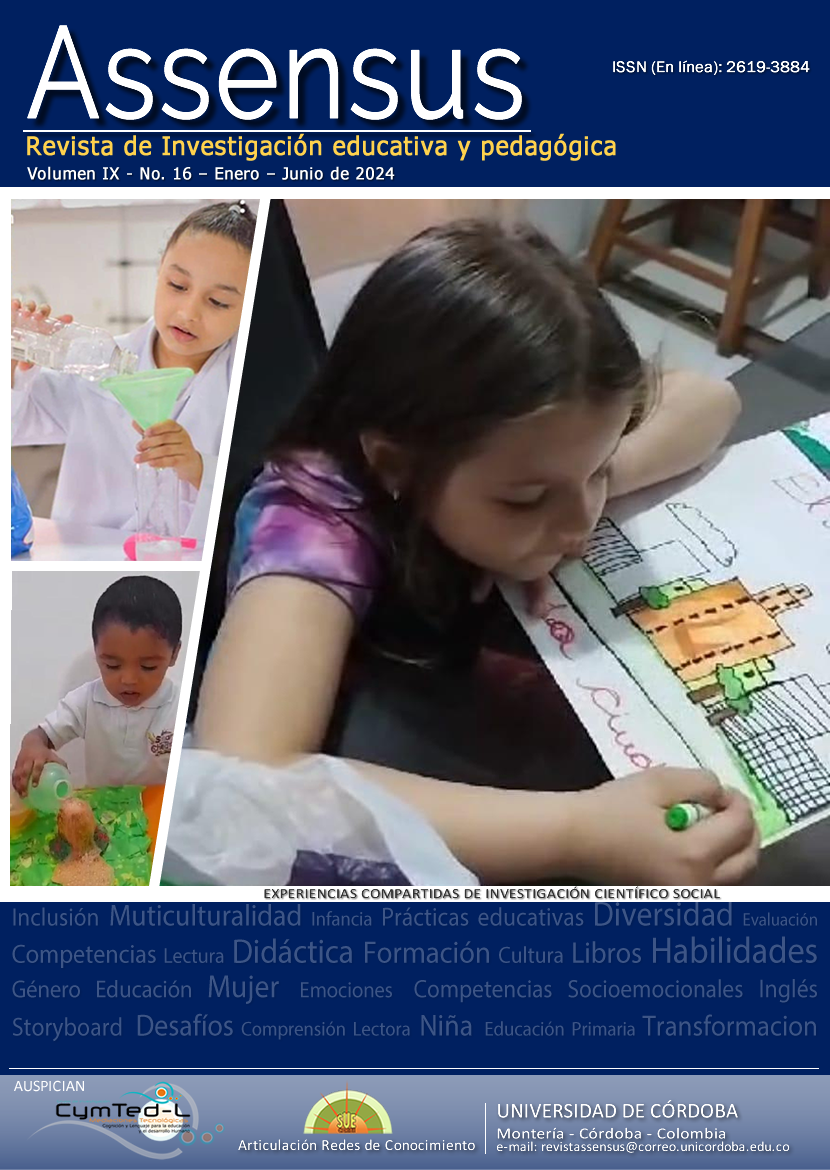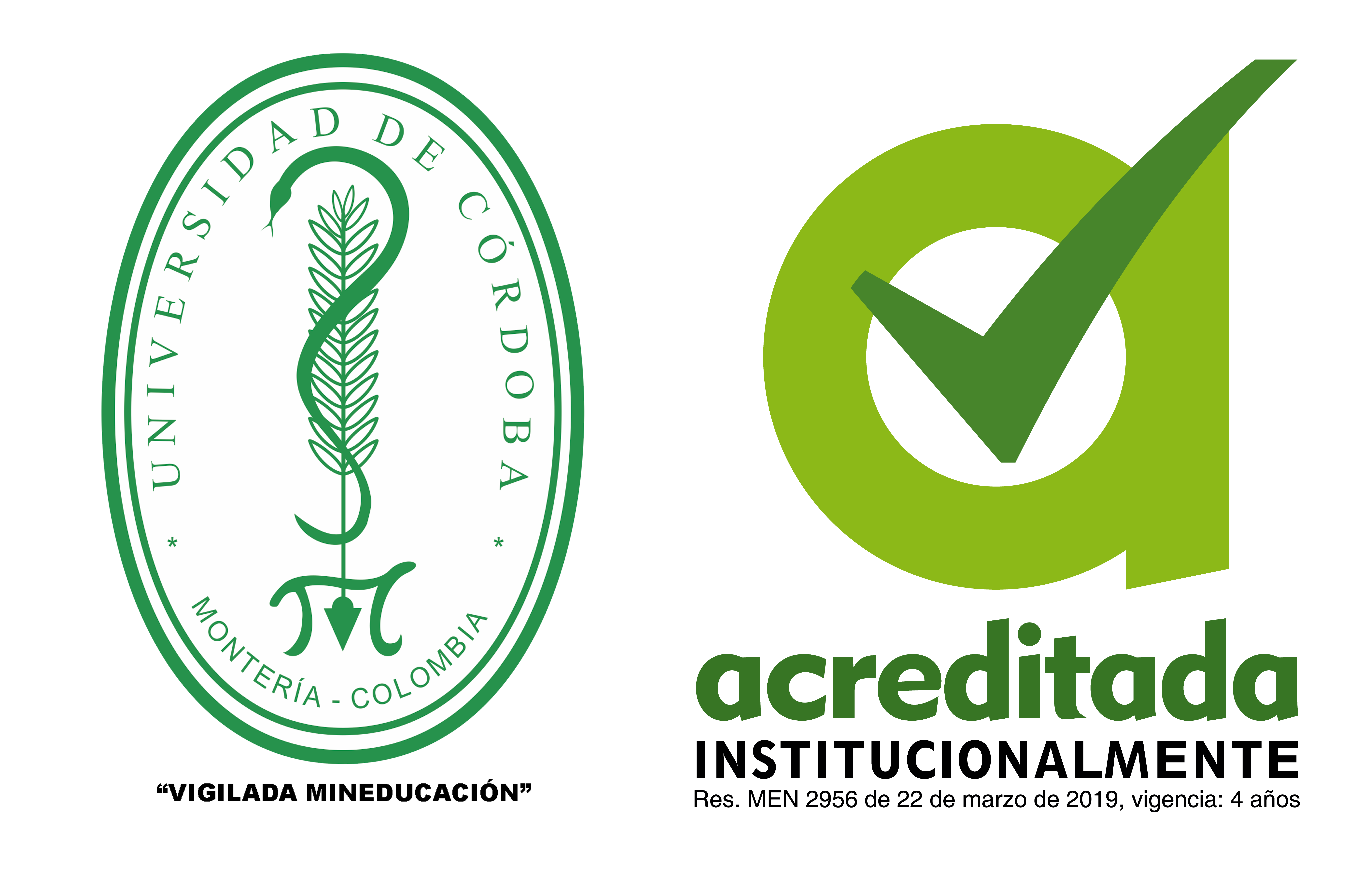Didactic strategies in the development of socio-emotional competencies in sixth grade students in the post-pandemic
Estrategias didácticas en el desarrollo de competencias socioemocionales en estudiantes de sexto grado en post pandemia

This work is licensed under a Creative Commons Attribution-ShareAlike 4.0 International License.
The Assensus journal has a Creative Commons license. The citation, use and partial or total reproduction of the contents is authorized by citing sources. For more information, see https://creativecommons.org/licenses/by-sa/4.0/deed.en
Show authors biography
Since the emergence of COVID-19 as a health emergency in Colombia, people, especially children and adolescents, have experienced emotions of fear, uncertainty, stress and anger. These emotions have affected cognitive and social development, manifesting themselves in the development of socio-emotional competencies in sixth grade students of the Aníbal Ojeda Educational Institution, Sucre-Colombia, and in the problem of school dropout. An epistemic model of structuralism was used with an inductive qualitative approach. The population studied included 105 high school students, ten teachers, one administrator and one manager, while the convenience sampling was made up of 19 sixth grade students, between 9 and 12 years of age: four teachers and one director. The information was collected through observation techniques, field diaries, focus groups and interviews. The results obtained indicate that the pandemic experienced due to the COVID-19 virus negatively affected the socio-emotional area of the students, which led to poor academic performance upon returning to the classroom. For this reason, it is necessary to propose strategies that mitigate this problem and strengthen the socio-emotional competencies of students.
Article visits 17 | PDF visits
Downloads
- Anaya, L., Morales, G., & Urueta, M., (2021). Los trastornos Emocionales Asociados al Aislamiento de los Estudiantes del Colegio San José Hermanitas de la Anunciación del Grado 5 de Primaria y Primero de Bachillerato de Barranquilla durante la Pandemia COVID-19. Universidad Simón Bolívar.
- Bandura, A. (1977). Social Learning Theory. Englewood Cliffs: Prentice Hall.
- Barrios, B. (2018). La epistemología genética de Jean Piaget. Recuperado de: https://www. researchgate. net/profile/Berta-Barrios/publication/329731394_La_epistemologia_genetica_de_Jean_Piaget/links/5c185 02092851c39ebf52bbc/La-epistemologia-genetica-de-Jean-Piaget. pdf.
- Bronfenbrenner, U. (1979). The ecology of Human Development. Cambridge, Harvard University Press. (Trad. Cast.: La ecología del desarrollo humano. Barcelona, Ediciones Paidós, 1987).
- Colorado-Bello, S. N. (2021). Protocolo Para el Mejoramiento de Habilidades Socioemocionales en Estudiantes de Primaria. Aura Ediciones.
- Corral, Y. (2016). Validez y fiabilidad de investigaciones cualitativas. Revista ARJÉ. Revista de Postgrado FaCE-UC. Vol. 11 N° 20. pp.196-209.
- Deci, E. L. & Ryan, R. M. (1985). Intrinsic motivation and self-determination in human behavior. New York: Plenum Press.
- Goleman, D. (1995). Inteligencia Emocional. Editorial Bantam Books.
- Gross, J. J. (1998). The emerging field of emotion regulation: An integrative review. Review of general psychology, 2(3), 271-299.
- Hernández, R. Baptista, M., & Fernández, C. (2014). Metodología de la investigación. Editorial McGRAW-HILL
- Herrera Gutiérrez, Claudia, & Villafuerte Álvarez, Carlos Alberto. (2023). Estrategias didácticas en la educación. Horizontes Revista de Investigación en Ciencias de la Educación, 7(28), 758-772. https://doi.org/10.33996/revistahorizontes.v7i28.552
- Hurtado, J. (2000) Metodología de la Investigación Holística. Servicios y Proyecciones para América Latina. Editorial Fundación Sypal. https://ayudacontextos.files.wordpress.com/2018/04/jacqueline-hurtado-de-barrera-metodologia-de-investigacion-holistica.pdf
- Latorre, A., Del Rincón, D., & Arnal, J. (1996). Bases metodológicas de la investigación educativa. Editorial W.
- Letelier-López, A. (2015). Concepciones sobre interacción social en relación con el aprendizaje y desarrollo en docentes de primero básico. Paidós.
- Mejía, J., Rodríguez, G., Guerra, N., Bustamante, A., María Paula Chaparro & Castellanos., M. (2016). Estrategia de formación de competencias socioemocionales en la educación secundaria y media. Recuperado el 11 de noviembre de 2023, de https://www.mineducacion.gov.co/1759/articles-385321_recurso.pdf
- Ministerio de Educación Nacional (2012). Definición de Competencia. https://www.mineducacion.gov.co/1621/article-79364.html
- Ministerio de Educación Nacional (2022). La importancia de las habilidades socioemocionales para el aprendizaje y la vida. https://www.colombiaaprende.edu.co/agenda/tips-y-orientaciones/la-importancia-de-las-habilidades-socioemocionales-para-el-aprendizaje
- Organización Panamericana de la Salud (2020). Coronavirus. Oficina Regional para las Américas de la Organización Mundial de la Salud. https://www.paho.org/es/temas/coronavirus.
- Otzen, T., Manterola, C. (2017). Técnicas de Muestreo sobre una Población a Estudio. Int. J. Morphol., 35(1):227-232. https://scielo.conicyt.cl/pdf/ijmorphol/v35n1/art37.pdf.
- Piaget, J. (1970). Piaget’s theory. In P. H. Mussen (Ed.), Carmichael’s manual of child psychology (pp. 703-732). New York: Wiley.
- Pinos, M. (2019). Con corazón y cerebro: Net learning: aprendizaje basado en la neurociencia, la emoción y el. Caligrama.
- Repetto, E., & Pena, M. (2010). Las Competencias Socioemocionales como Factor de Calidad en la Educación. REICE. Revista Iberoamericana sobre Calidad, Eficacia y Cambio en Educación, 8(5), 82-95. https://www.redalyc.org/articulo.oa?id=55119084006
- Rodríguez, R. (2018). El estructuralismo como modelo epistémico que busca explicar la realidad social. Revista Venezolana de Análisis de Coyuntura, XXIV (2), 147-155.
- Romero, H. (2016). Inteligencia Emocional y Clima Organizacional. Universidad Rafael Landívar. Facultad de Humanidades. Quetzaltenango – Guatemala.
- Royo, M. (2013). Centros emocionalmente inteligentes. En P. Darder (Coord.). Aprender y educar con bienestar y empatía. La formación emocional del profesorado (pp. 45-67). Barcelona: Ediciones Octaedro. https://www.redalyc.org/pdf/870/87050902008.pdf
- Sánchez, I., M., (2021). Impacto psicológico de la COVID-19 en niños y adolescentes. Medisan, 25(1), 123-141. Epub 15 de febrero de 2021. http://scielo.sld.cu/scielo.php?script=sci_arttext&pid=S1029-30192021000100123&lng=es&tlng=es.
- Scott, C. L. (2015). El futuro del aprendizaje 2¿Qué tipo de aprendizaje se necesita para el siglo XXI?. https://repositorio.minedu.gob.pe/handle/20.500.12799/4661
- Urzola, M. (2020). Métodos inductivos, deductivos y teoría de la pedagogía crítica. Revista Crítica Transdisciplinar, 3(1), 36-42.
- Vaello, J. (2009). El profesor emocionalmente competente. Un puente sobre “aulas” turbulentas. Editorial Graó.
- Valle, A. (2022). La Investigación Descriptiva con Enfoque Cualitativo en Educación. [Guía investigación descriptiva, Pontificia Universidad Católica del Perú]. Repositorio Institucional de la PUCP. https://files.pucp.education/facultad/educacion/wp-content/uploads/2022/04/28145648/GUIA-INVESTIGACION-DESCRIPTIVA-20221.pdf
- Villaseñor, P. (2017). ¿Cómo pueden los maestros fomentar (o impedir) el desarrollo de habilidades socioemocionales en sus estudiantes? https://blogs.worldbank.org/es/voices/como-pueden-los-maestros-fomentar-o-impedir-el-desarrollo-de-habilidades-socioemocionales-en-sus-estudiantes
- Wilder-Smith, A., & Freedman, D.(2020). Isolation, quarantine, social distancing and community containment: pivotal role for old-style public health measures in the novel coronavirus (2019-nCoV) outbreak. Journal of travel medicine. https://doi:10.1093/jtm/taaa020.



